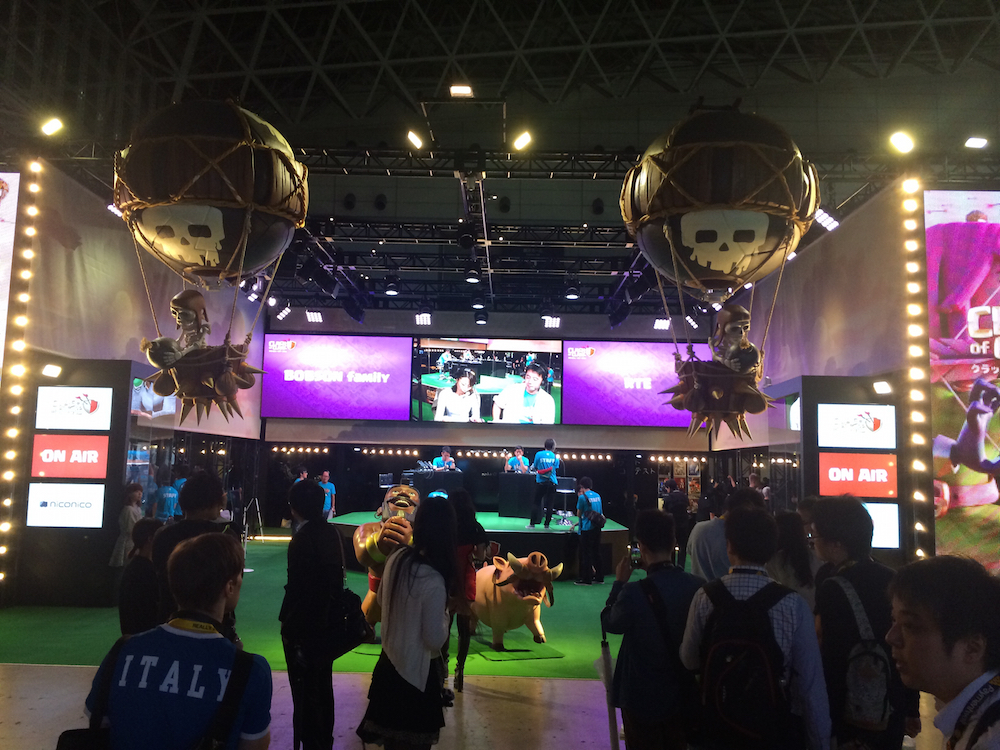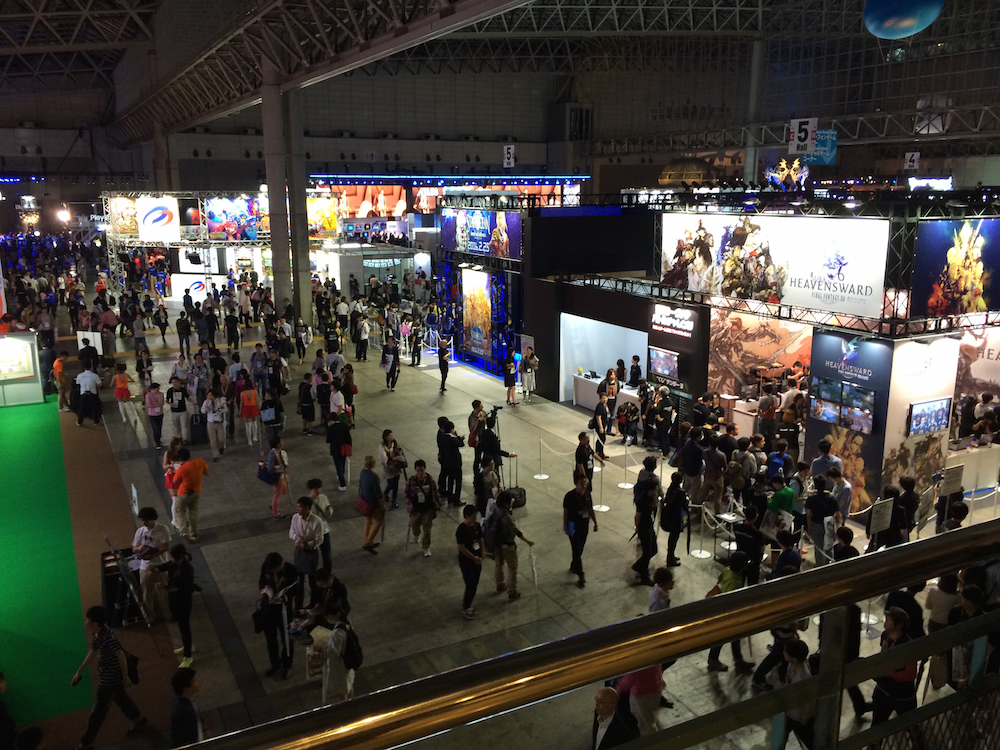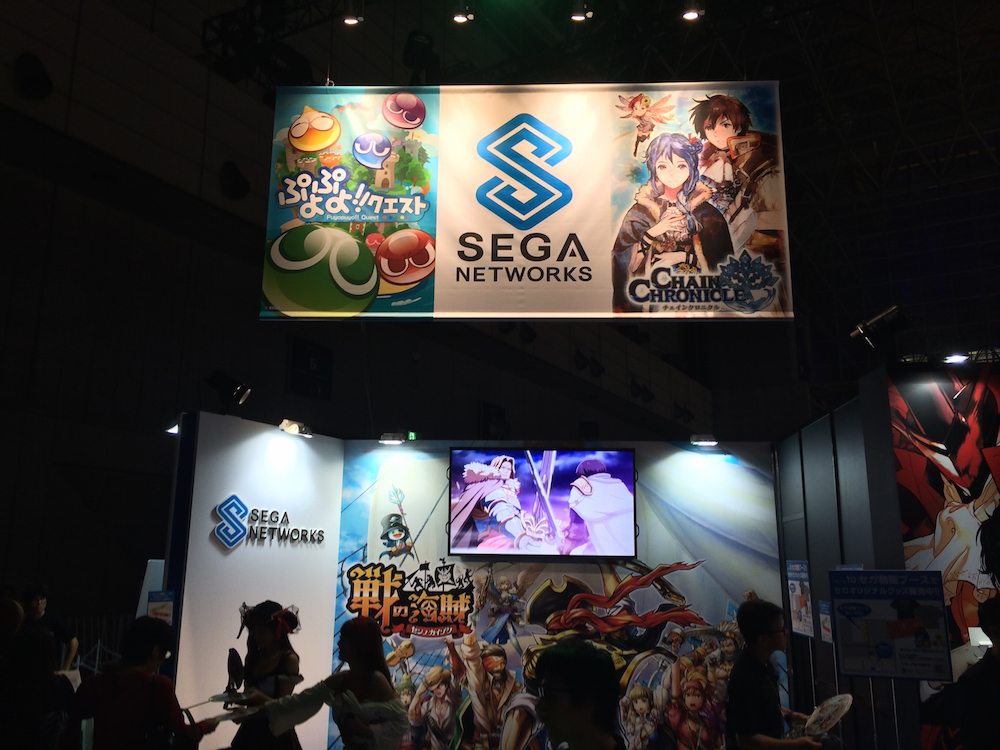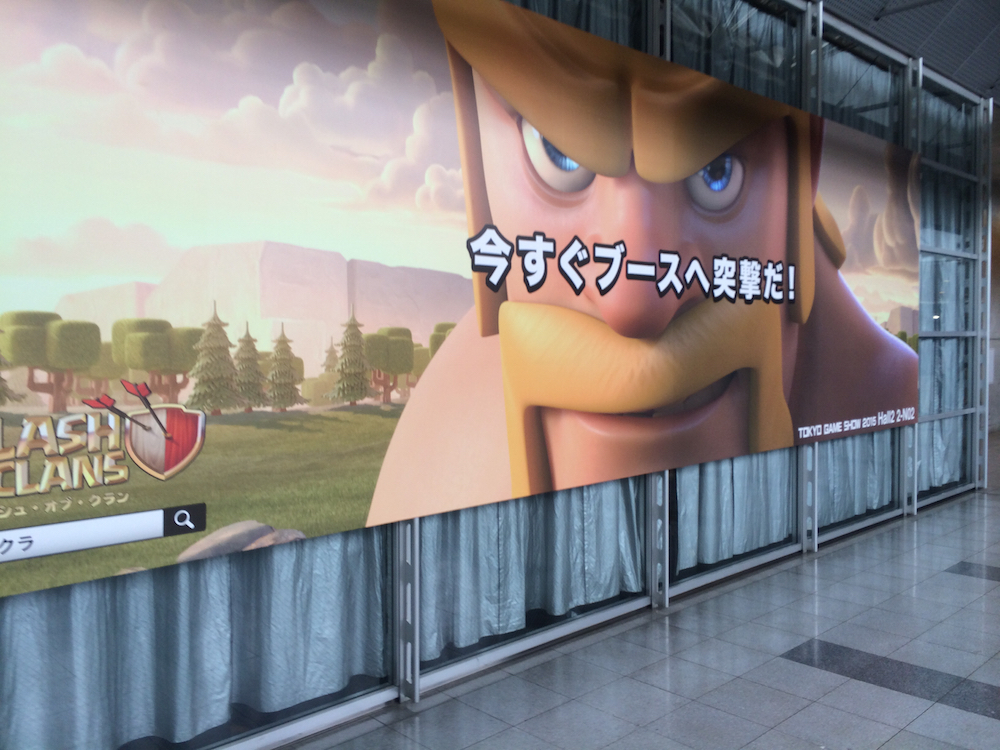It wasn’t too many years ago that I thought the Tokyo Game Show was on its way out. Barely filling just over half the available space at Makuhari Messe, with small, modest booths and few interesting games, Tokyo Game Show was in a bad place at the turn of the decade. Fast forward just a few years, and it seems like it’s getting bigger and more vibrant with each show. This year’s show was the biggest one yet, and for mobile fans, a very notable one. The biggest representation for any platform at the show was for mobile gaming. The official poster for the show featured a character holding a controller in one hand and a smartphone in the other. The largest, most lavish booth at the show belonged to a mobile RPG.

And yet, one can’t help but feel the divide in tastes between the East and the West when looking around the floor. Social RPGs positively dominated the show, and many of them have been out for years. Even Square Enix, who previously could be reliably counted upon to have a few big paid offerings for mobile, has made an obvious shift towards free-to-play social RPGs. It’s a genre that has yet to really take hold outside of Asia, and I wonder if it ever will. Free-to-play games are no slouch in any market, but in Japan, they’ve gained considerable acceptance with the mainstream gamers, making it a bit hard to find anything but free-to-play RPGs with gatcha mechanics.
Hard, but not impossible. You see, the Tokyo Game Show has become quite an international event, drawing in developers from more than 35 different countries. With that variety comes an equal mix of content. To be sure, if you’re looking for good paid games, you’ll probably need to check out the indie developers, but even in the free-to-play side of things, that healthy variety in backgrounds is making for interesting evolution. The open nature of the mobile market if nothing else makes for a lot of interesting ideas joining the discussion, something that could easily be seen with a stroll around the floor of the convention center.

The one bummer is that I all-too-frequently heard from developers that their games would not be releasing worldwide. One of the coolest free-to-play games I played on the floor was a unique dungeon crawler called The Magic Of Magix, from Riz and Quinzel Games. It plays out like a classic first-person dungeon crawler, tasking you with finding the exit on each floor. When you run into an enemy, the combat system involves choosing two elements to attack with. If you select the right element in the wrong order, you’ll score a graze attack and do a little damage. If you get the right element in the right order, you’ll score a hit and do heavy damage. Each enemy is different so you have to suss out their weaknesses to succeed. Most of the game is already in English, but for reasons the representative couldn’t elaborate on, the game will apparently only be released in Japan.
I heard the same answer about one of Riz’s other games, the Tetch Creatives-designed strategy game Vegemagi. It’s a fun cross between a farming game and a Terra Battle-style strategy battle system. There are even some elements of Triple Triad in the combat, making for a type of combination I don’t think I’ve seen in this kind of game before. But again, for various reasons, it won’t be releasing in English.

It’s not just the little guys, either. Japanese giants like Square Enix, Namco Bandai, Konami, Paon, DMM.com, Koei-Tecmo, SEGA, and others were all showing off many games that will likely never leave Japan’s shores. It’s not like this is the physical media era anymore, so I’m not sure why they don’t at least give it a shot to see what happens. The risk seems small enough to take a few chances, if you ask me.
The prevailing idea among Japan’s mobile developers seems to be that Japan is a big enough market on its own to make really good money, so going to all the effort of releasing internationally seems pointless. This reminds me a lot of the 8-bit and 16-bit console eras, and given how much more money everyone made with the increasing number of globalized releases in the PlayStation era, I’m surprised we’re seeing this old reluctance come back. At least among the developers I spoke with, this reluctance was not found in teams from other Asian countries. Taiwanese developers in particular seem quite eager to have their games go worldwide.

Developers from the West are starting to take Japan more seriously, too. Supercell’s booth was huge, and it was pretty much dedicated to Clash Of Clans, which is finally starting to catch on with Japanese players. Wargaming’s World Of Tanks has found great success in Japan, and their booth was also quite an eye-catcher, along with the tank they had parked outside in the rain.
Overall, it was a great show. There was a tangible sense of optimism in the air, a welcome change from several years ago when everyone seemed to feel so defeated. Even the console developers in Japan seem re-energized, something that makes me feel all warm and fuzzy inside in spite of the fact that consoles must die if our immortality is to be assured. Joking aside, it’s great to see game developers, publishers, media, and the players coming together from all over the world to celebrate gaming, in all of its forms. It was absolutely exhausting, and I can’t wait to do it again next year. I just hope it’s a little less rainy.